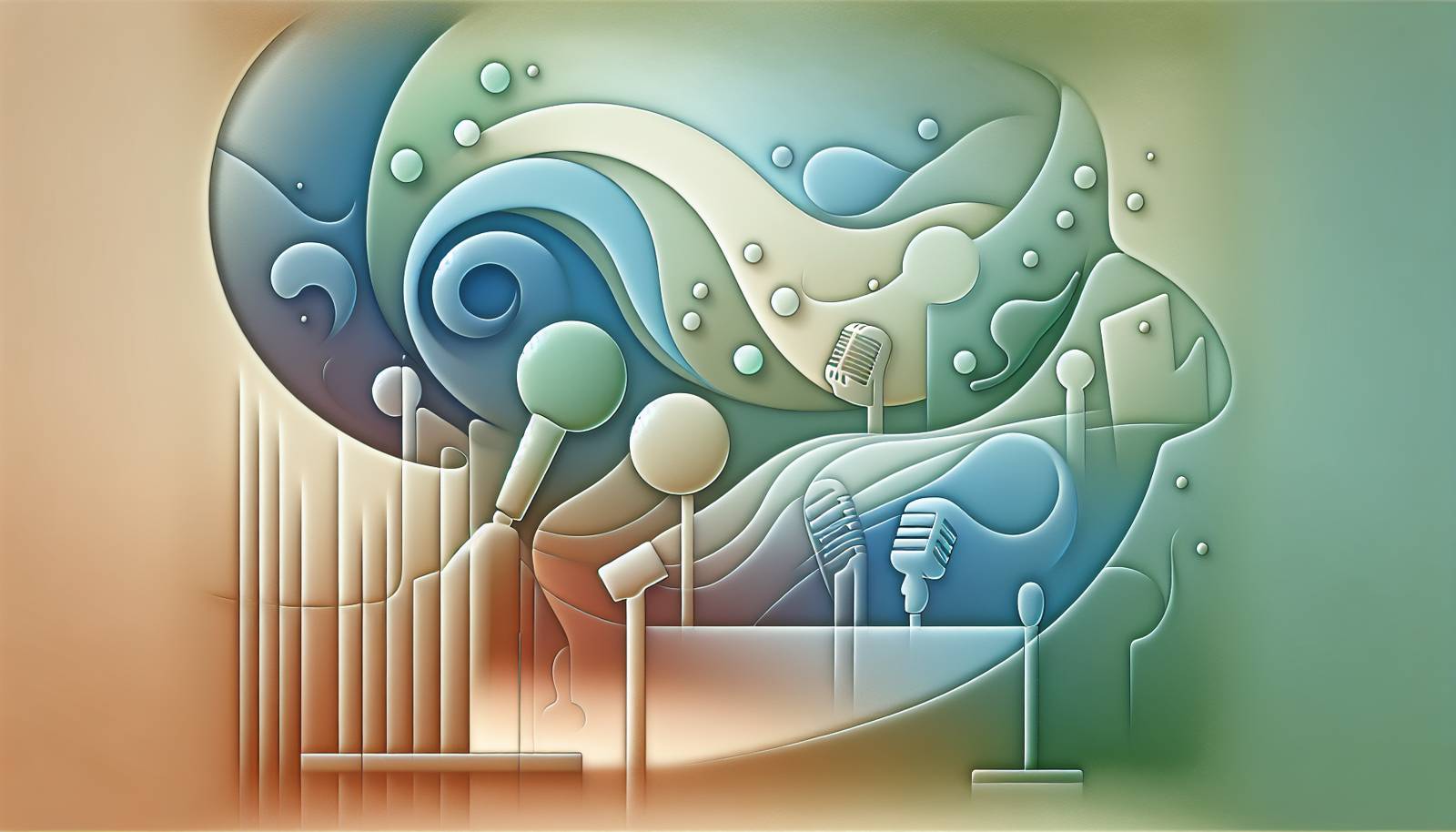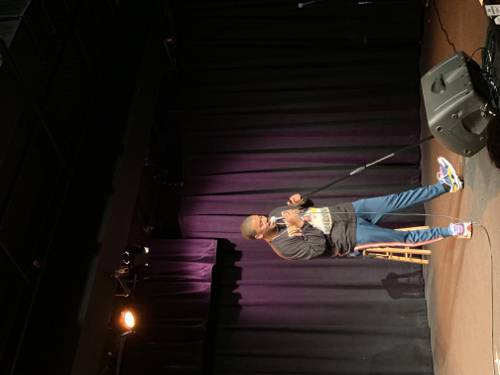
FAQ About The Impact of Stand-Up Comedy on Political Engagement

How does stand-up comedy influence political awareness?
Stand-up comedy often incorporates current political issues into its content, making these topics more accessible and engaging for audiences. By blending humor with commentary, comedians can simplify complex political subjects, encouraging people to become more informed about governmental actions and policies. This awareness can lead to increased interest in political participation and discussions.

What role does humor play in stand-up comedy's political commentary?
Humor serves as a tool for comedians to critique political figures and policies in a way that is engaging and often less confrontational than traditional forms of criticism. It allows audiences to reflect on societal issues in a relaxed atmosphere, potentially leading to greater openness to different perspectives. Through humor, comedians can highlight absurdities, challenge authority, and inspire critical thinking about politics.

Can stand-up comedy shape public opinion on political issues?
Yes, stand-up comedy can shape public opinion by influencing how individuals perceive political figures, events, and policies. Comedians often have a wide reach through live performances and social media, allowing them to spread their perspectives to diverse audiences. By framing issues in a relatable and entertaining way, comedians can sway opinions and encourage audiences to question or reaffirm their beliefs.

Are there any historical examples of stand-up comedy impacting political engagement?
Historically, stand-up comedians like George Carlin and Lenny Bruce have played significant roles in impacting political engagement by using their platforms to address social injustices and criticize government actions. More recently, comedians such as Jon Stewart and John Oliver have been influential in political discourse, with shows that highlight and critique political events in a humorous yet informative manner, thereby engaging viewers in political issues.

How has the internet changed the role of stand-up comedy in political engagement?
The internet has expanded the reach and influence of stand-up comedy by allowing comedians to share their routines globally through platforms like YouTube, Instagram, and Twitter. This increased accessibility aids in the rapid dissemination of political content and provides opportunities for comedians to engage with audiences in real-time discussions. Online platforms also enable comedians to reach younger audiences who are more likely to integrate this humor into their political understanding.

Do all comedians engage in political topics?
No, not all comedians focus on political topics. While many use their platform to comment on social and political issues, others may instead focus on personal anecdotes, observational humor, or other non-political subjects. The choice often depends on the comedian's style, audience, and the type of humor they wish to present.

Why might audiences be drawn to political stand-up comedy?
Audiences may be drawn to political stand-up comedy because it provides an entertaining and approachable way to understand and engage with political issues. Humor can break down barriers, making contentious topics more palatable and encouraging dialogue. Additionally, audiences often appreciate comedians who genuinely resonate with their political views, offering a sense of community and shared understanding.

What challenges do comedians face when engaging in political comedy?
Comedians face several challenges when engaging in political comedy, including the risk of alienating audience members with differing viewpoints, potential backlash from political figures or their supporters, and the difficulty of keeping material relevant amidst rapidly changing political landscapes. Additionally, comedians must navigate the fine line between humor and offensiveness, ensuring their jokes critique rather than harm.

How do comedians research political topics for their routines?
Comedians often research political topics by staying informed about current events through news outlets, social media, and political analysis. Some may collaborate with writers and researchers to deepen their understanding and ensure accuracy. This research helps comedians develop informed perspectives and nuanced material that effectively blends humor with political commentary.

What impact do comedic talk shows have on political engagement?
Comedic talk shows, like those hosted by Stephen Colbert and Trevor Noah, play a significant role in political engagement by offering audiences a mix of humor, interviews, and news analysis. These shows can educate viewers about political events and issues in an entertaining format, often prompting viewers to seek additional information or engage in discussions about the topics presented.

Is stand-up comedy a reliable source of political information?
While stand-up comedy can spark interest in political topics, it should not be solely relied upon for comprehensive and accurate information. Comedians often present biased or exaggerated perspectives for comedic effect. It is essential for audiences to supplement comedic content with information from reputable news sources to gain a well-rounded understanding of political issues.

How do comedians handle political bias in their comedy?
Comedians might handle political bias by clearly presenting their viewpoints while leaving room for audiences to interpret the humor themselves. Some may use satire to exaggerate opposing perspectives, offering commentary on various sides of a political issue. However, most comedians naturally align with their personal beliefs, and their material may reflect those biases. Transparency and self-awareness can help comedians navigate these biases positively.

How has satire influenced political stand-up comedy?
Satire has deeply influenced political stand-up comedy by providing a framework for comedians to mock political figures and institutions, highlighting absurdities and contradictions in politics. Through satire, comedians can effectively communicate criticism while maintaining a humorous tone, making serious political commentary more entertaining and thought-provoking for audiences.

Do political figures ever respond to stand-up comedy critiques?
Yes, political figures sometimes respond to critiques made by stand-up comedians, especially if a joke gains widespread attention or goes viral. Responses can range from public rebuttals or humorously acknowledging the critique to more severe reactions, such as denouncing the comedian or their remarks. These interactions can further amplify the comedian's impact on political engagement.

How does stand-up comedy differ from traditional political commentary?
Stand-up comedy differs from traditional political commentary in its format and tone. It often uses humor to make political points, engaging audiences with entertaining performances that don't adhere to typical journalistic standards. While traditional commentary usually aims for objectivity and thorough analysis, stand-up comedy is more personal and subjective, allowing comedians to present opinions alongside comedic critique.

What demographic trends are seen in the audiences of political stand-up comedy?
Demographic trends indicate that political stand-up comedy often attracts younger audiences, who are typically more receptive to humor integrated with politics. Additionally, these audiences tend to be more digitally savvy, accessing comedic content through online platforms. Demographic data also reveals varied preferences, with many viewers favoring comedians whose political leanings align with their own.

Are there cultural differences in how stand-up comedy engages politically?
Cultural differences significantly impact how stand-up comedy engages with political topics. In some cultures, comedians may have wide licenses to critique political figures openly, while in others, restrictions may limit such expression due to censorship or cultural norms. Comedians must be aware of these differences when performing to ensure their material resonates appropriately with diverse audiences.

How do comedians balance comedy with sensitivity on serious political topics?
Comedians balance comedy with sensitivity on serious political topics by approaching these issues thoughtfully, often using humor to highlight rather than diminish the seriousness of the subject. Skilled comedians can use satire and irony to prompt conversations, ensuring their material is inclusive and respectful to those involved while still making incisive points.

What influence do stand-up comedians have on voter turnout?
Stand-up comedians can influence voter turnout by mobilizing audiences through their platforms to engage politically, often encouraging participation in elections. By integrating calls-to-action within their routines or through association with voting campaigns, comedians raise awareness about the importance of voting, potentially increasing turnout among their audiences, especially young voters.

Does political stand-up comedy have educational value?
Political stand-up comedy can have educational value by introducing audiences to political issues in an accessible and engaging manner. Through the combination of humor and information, comedians can simplify complex topics, spark curiosity, and motivate further exploration. However, for comprehensive understanding, it should be complemented with more detailed sources.
